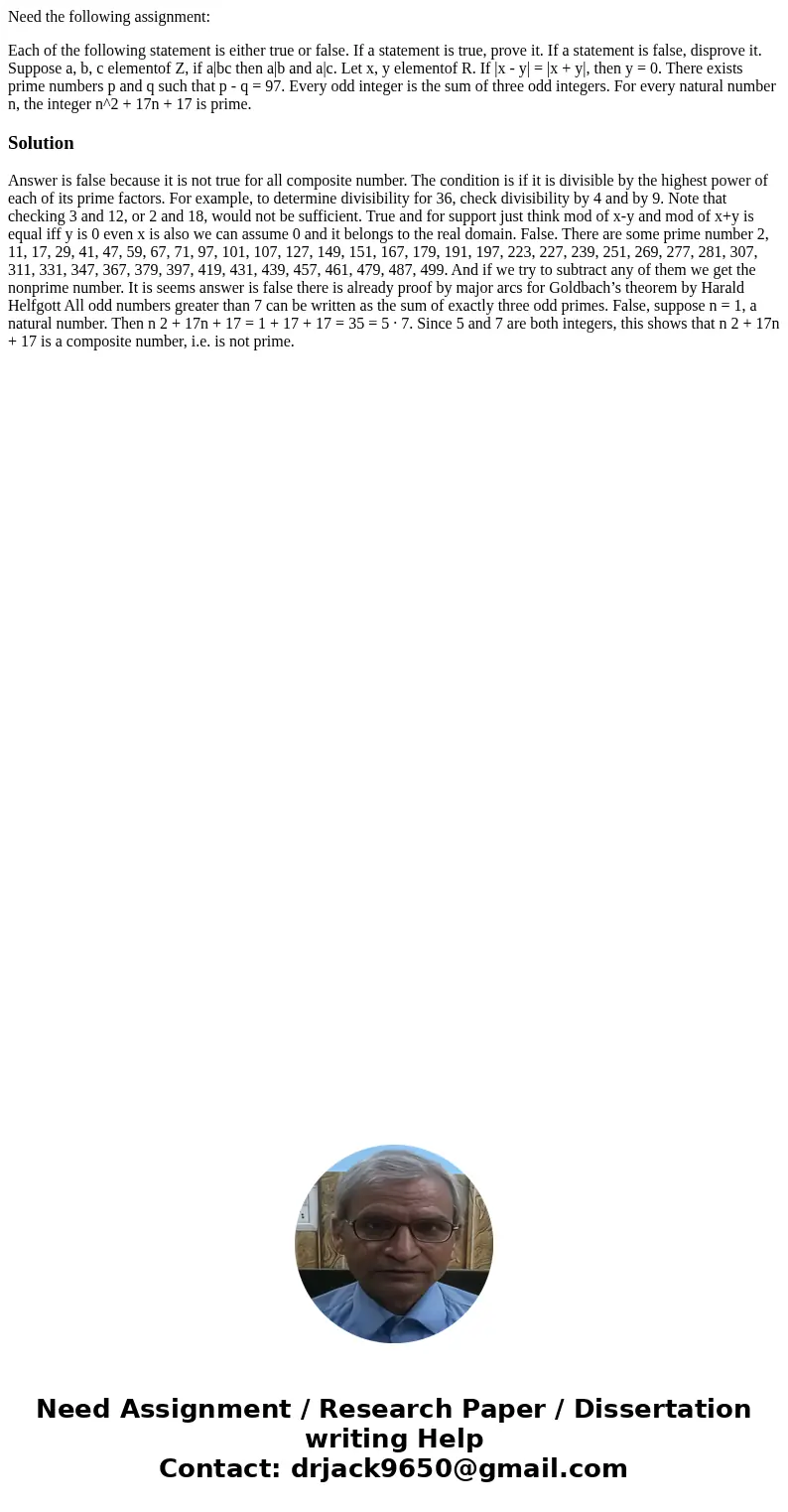Need the following assignment Each of the following statemen
Need the following assignment:
Each of the following statement is either true or false. If a statement is true, prove it. If a statement is false, disprove it. Suppose a, b, c elementof Z, if a|bc then a|b and a|c. Let x, y elementof R. If |x - y| = |x + y|, then y = 0. There exists prime numbers p and q such that p - q = 97. Every odd integer is the sum of three odd integers. For every natural number n, the integer n^2 + 17n + 17 is prime.Solution
Answer is false because it is not true for all composite number. The condition is if it is divisible by the highest power of each of its prime factors. For example, to determine divisibility for 36, check divisibility by 4 and by 9. Note that checking 3 and 12, or 2 and 18, would not be sufficient. True and for support just think mod of x-y and mod of x+y is equal iff y is 0 even x is also we can assume 0 and it belongs to the real domain. False. There are some prime number 2, 11, 17, 29, 41, 47, 59, 67, 71, 97, 101, 107, 127, 149, 151, 167, 179, 191, 197, 223, 227, 239, 251, 269, 277, 281, 307, 311, 331, 347, 367, 379, 397, 419, 431, 439, 457, 461, 479, 487, 499. And if we try to subtract any of them we get the nonprime number. It is seems answer is false there is already proof by major arcs for Goldbach’s theorem by Harald Helfgott All odd numbers greater than 7 can be written as the sum of exactly three odd primes. False, suppose n = 1, a natural number. Then n 2 + 17n + 17 = 1 + 17 + 17 = 35 = 5 · 7. Since 5 and 7 are both integers, this shows that n 2 + 17n + 17 is a composite number, i.e. is not prime.
 Homework Sourse
Homework Sourse